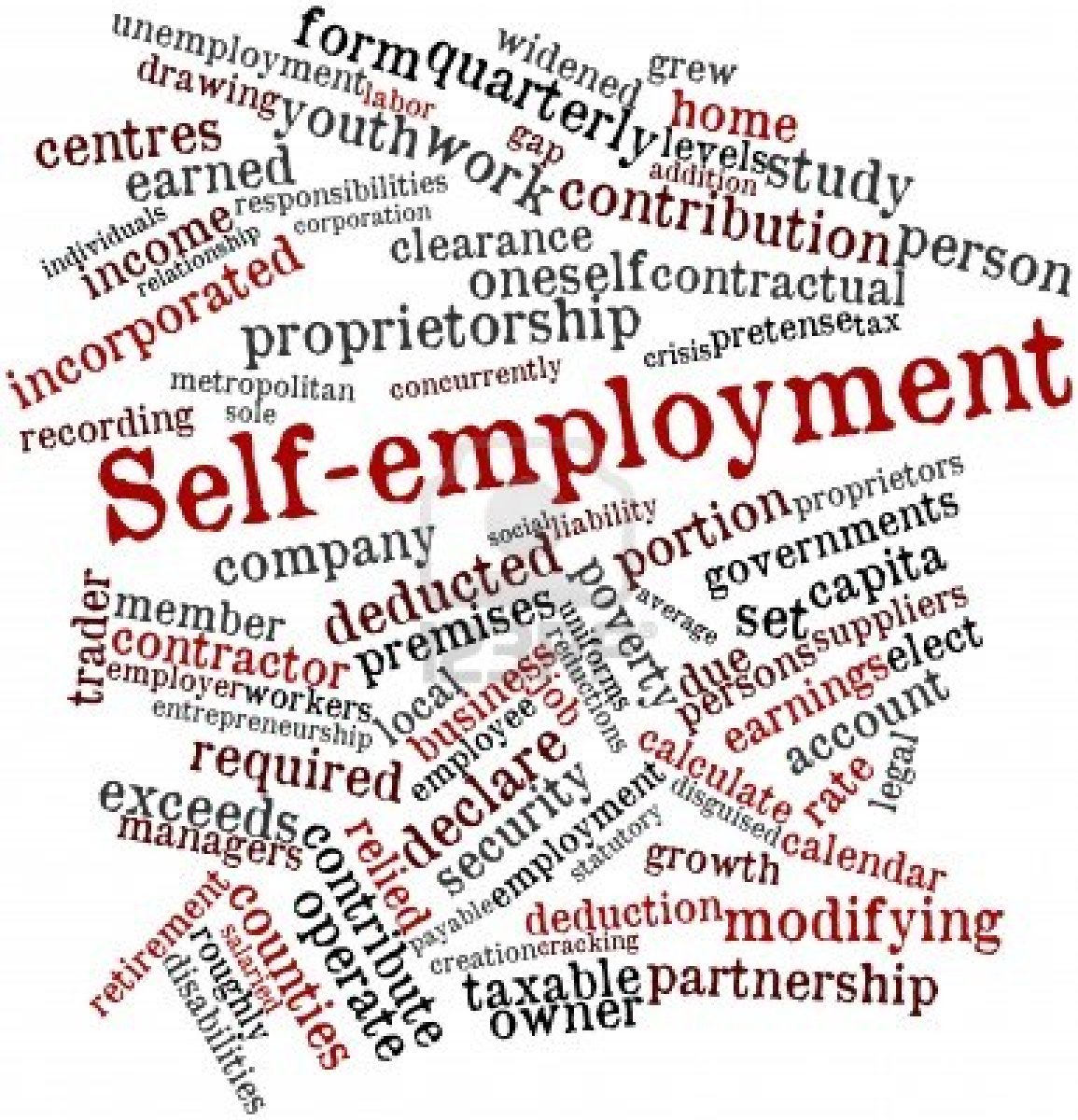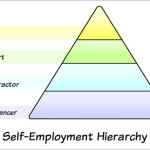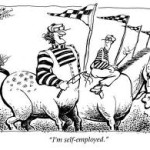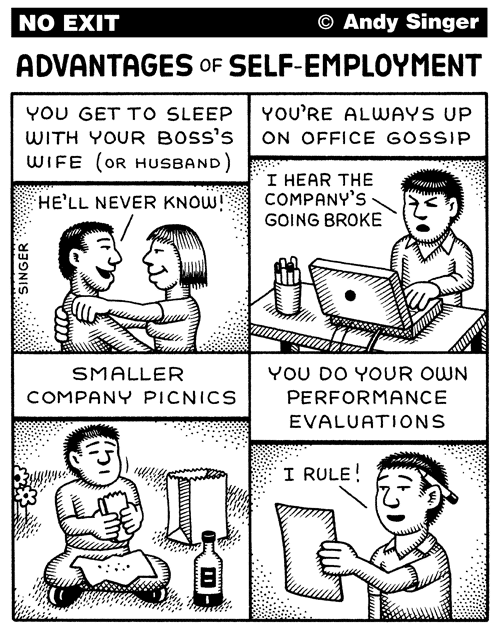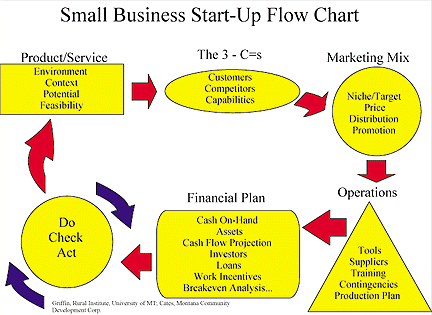We all need money and have to go through an often bizarre set of rituals to obtain it, sometimes like playing obscure games to the rules devised by other people. There is an alternative: devise your own rules and be your own boss, providing you can do something for which other people are prepared to pay handsomely.
And there are many ways to do so. Prostitution might be argued as a semi-legal form of self-employment, providing you don’t have pimps taking all your money. A friend (jokingly I think) suggested I should take up a new career as a gigolo, though I doubt I would find any clients. Point is that self-employment doesn’t have to be restricted to any one defined path – you could take any idea anywhere it leads, and maybe create new opportunities that until now the world never thought it needed.
Not only that but you can fit it to suit your commitments – you can work from home and do stuff online, be it buying and selling on eBay, setting up a subscription service, advertising your B&B, website design, video editing, whatever it happens to be. Before connected computers, many of these options would have been impossible, and others would have been restricted to good old-fashioned methods like running a shop or market stall.
February 2013 marked 20 years since I began working for myself, or to be strictly accurate running my own limited company. This is not only a long time but five times longer than I’ve ever worked for any other employer. Note that I’m referring specifically to freelance status rather than being an entrepreneur, setting up your own company and employing lots of other people – not that this isn’t a worthwhile pursuit, but it was my choice not to follow this path. As the hierarchy of self-employment shows (see above) you can do it in a humble way as a jobbing worker (even your friendly neighbourhood handyman might fall into that category), a contractor (which on occasion I’ve been), an expert (much more so since my MBA and building a range of specific skills), and then guru – whereupon people will beat a path to your door for a small fragment of wisdom.
All this has its plusses and minuses, though most people have told me over the years “I wish I had your courage” – not least my dad, who once told me that if he’d had his time again he’d have formed his own architectural practice. I’d dispute that it takes courage, providing you can cope with the paperwork and dealing with HMRC, though it does require vision and determination. For most of these years I’ve felt more secure than people in so-called “permanent” jobs – to the extent that people offered redundancy after 20+ years in Nat West were asking me for advice on if and how they could become freelance.
Compared to the entrepreneurship option, it is relatively cheap and easy to do, providing you have space for your own office. The benefits are not hard to see: it does not require massive capital or premises, and if you have skills or services in strong demand will mean a direct correlation between your own efforts and rewards – and if doing what you want when you want doesn’t motivate you, nothing will! You have independence and can work according to the pattern that suits you best. Granted that many self-employed or freelance people find it hard to make ends meet, but equally many can earn more from freelance status than from employment – at the cost of no sick pay, holiday pay etc. But then there are many employers who don’t pay sick pay as it is.
The one problem every freelance encounters is the feast and famine scenario: sometimes you will have more work than you can possibly handle, and at others no client work turns up at all and you begin to fret. Actresses go waitressing, freelance journalists drive lorries to make ends meet, everyone needs a contingency, a fall-back position in the event that their first choice of employment runs dry.
In my case that used to be managed through networking: I would do favours for people by tipping them the wink when I heard a given employer was looking for particular consultancy skills or a good project manager, and they would do the same for me. Actually, back in the day I used to get lots of repeat business from the same organisations, notably One 2 One (pre T-Mobile) and Nat West (pre- and post-takeover.) Both those avenues of employment ran dry and increasingly I’ve had to use interim agencies, since when I’ve worked almost exclusively with NHS Trusts – by serendipity rather than design but when you know the healthcare market and techniques (like RTT, which has become my trusty standby). Agencies are not my first choice, but if they do the matchmaking it can be much simpler to go pitch for an interim role.
Another aspect of this life, compared to working for management consultancy companies and the like, is that you are not obliged to do stupid hours unless you want to. You pick and choose your own times, but clearly you have to be there if clients need you. For me it was a choice between having a life and living it to the full – time with kids, am drams and other things – or just allowing work to dominate everything. I chose the former, and am glad I did: work-life balance is good.
That’s the joy of working for yourself – it’s far less predictable and can take you down avenues you never expected to travel; let’s face it, getting rid of the routine and predictable nature of a 9-5 job is one of the major attractions of self-employment. 6-9 months is plenty with one client, then you can move on to a fresh challenge. Yes, in Corporate life you will go through spells in one division, then move to another, but you are restricted in what choice you can make.
I’ve never advertised my services, though in the Internet age and with social networking options there is no reason why you should. But a spot of artful marketing and building good word of mouth never went amiss. You have to have an eye for selling your services whenever the occasion demands, without being too heavy-handed about it. Just occasionally an opportunity will arise that way.
If I could earn a living from writing full time, I’d be happy as Larry, whoever Larry might be. I’m not bothered about being a millionaire, so long as I have a moderately comfortable lifestyle. Don’t especially want to be stressed, but love the idea that I can pick up my keyboard and write at any time for my own and for your pleasure. Since nobody will ever employ me again in the conventional way, this is a much better lifestyle. How come more people don’t take it?

